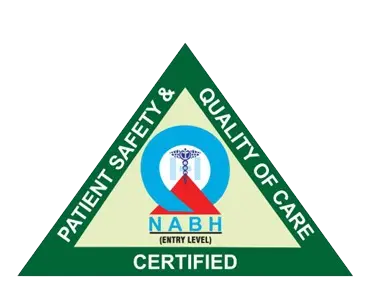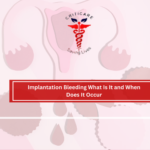Neurodevelopmental disorders are a group of conditions that affect the development of the brain and nervous system. These disorders can have a significant impact on a person’s cognitive, emotional, and social functioning.
Attention Deficit Hyperactivity Disorder (ADHD) is one of the most common neurodevelopmental disorders affecting children and adults. It is estimated that ADHD affects 5-10% of children and about 2.5% of adults worldwide.
In this blog post, we will discuss what parents need to know about ADHD, including its symptoms, causes, diagnosis, and treatment.
We will also provide tips for managing ADHD at home and supporting your child through this challenging condition.
Symptoms and Types of ADHD
ADHD is a neurodevelopmental disorder that is characterized by three core symptoms: inattention, hyperactivity, and impulsivity.
Inattention refers to difficulties with sustaining attention and being easily distracted. Hyperactivity involves excessive physical activity and restlessness, while impulsivity refers to acting without thinking about the consequences.
There are three forms of ADHD: inattentive type, hyperactive-impulsive type, and combined type.
- The inattentive type is characterized by difficulties with attention and organization, but not hyperactivity or impulsivity.
- The hyperactive-impulsive type is characterized by excessive physical activity and impulsive behavior, but not inattention.
- The combined type, which is the most common, includes symptoms of both inattention and hyperactivity-impulsivity.
Causes of ADHD
1). Genetics: Studies have found that ADHD tends to run in families, suggesting a genetic component. However, no single gene has been identified as the cause of ADHD. It is thought that multiple genes may be involved, each contributing a small effect.
2). Environmental factors: Exposure to environmental toxins such as lead or alcohol during pregnancy has been linked to an increased risk of ADHD. Other risk factors include premature birth, low birth weight, and maternal stress during pregnancy.
Additionally, studies have found that children who experience early-life stressors, such as neglect or trauma, may be more likely to develop ADHD.
3). Brain development: Neuroimaging studies have revealed differences in the brains of individuals with ADHD compared to those without the disorder. Specifically, there are differences in the size and functioning of certain areas of the brain that are involved in attention, planning, and impulse control.
Managing ADHD at Home
a). Strategies for creating a structured environment: Children with ADHD often benefit from a structured and predictable environment. This can include having designated spaces for homework and other activities, using visual aids such as calendars and checklists, and establishing clear rules and expectations for behavior.
b). Setting routines and schedules: Routines and schedules can help children with ADHD manage their time and stay on task. This can include setting consistent bedtimes and wake-up times, scheduling regular mealtimes, and establishing a homework routine that includes breaks and rewards for completing tasks.
c). Tips for communication and positive reinforcement: Positive reinforcement can be a powerful tool for promoting positive behavior in children with ADHD. This can include praising your child for good behavior, using a token system to reward positive behavior, and focusing on the positive rather than the negative.
It is also important to communicate with your child positively and constructively, using clear and direct language.
Parents and ADHD Cure
Every child with ADHD is different, and it is important to understand your child’s unique strengths and challenges. This may involve working with a healthcare provider to develop a treatment plan that is tailored to your child’s specific needs.
- Advocating for your child: Advocating for your child means working with teachers, coaches, and other caregivers to ensure that your child’s needs are being met. This may involve requesting accommodations or modifications in the classroom or on the sports field, or advocating for your child’s rights under the Americans with Disabilities Act (ADA).
- Finding support through local resources and communities: Finding support through local resources and communities can be invaluable in managing ADHD. This can include support groups for parents and children, as well as community resources such as tutoring or after-school programs.
Conclusion
In conclusion, ADHD is a neurodevelopmental disorder that can present unique challenges for both children and parents. However, with the right diagnosis, treatment, and support, children with ADHD can lead successful and fulfilling lives.
If you suspect that your child may have ADHD, it is important to seek a proper diagnosis and treatment from a reputable healthcare provider.
Criticare Hospital is one of the Best Neurology Hospitals in Lucknow, offering expert diagnosis, treatment, and support for children with ADHD and other neurodevelopmental disorders.
Don’t hesitate to reach out to their team of experienced healthcare professionals for help and support.



